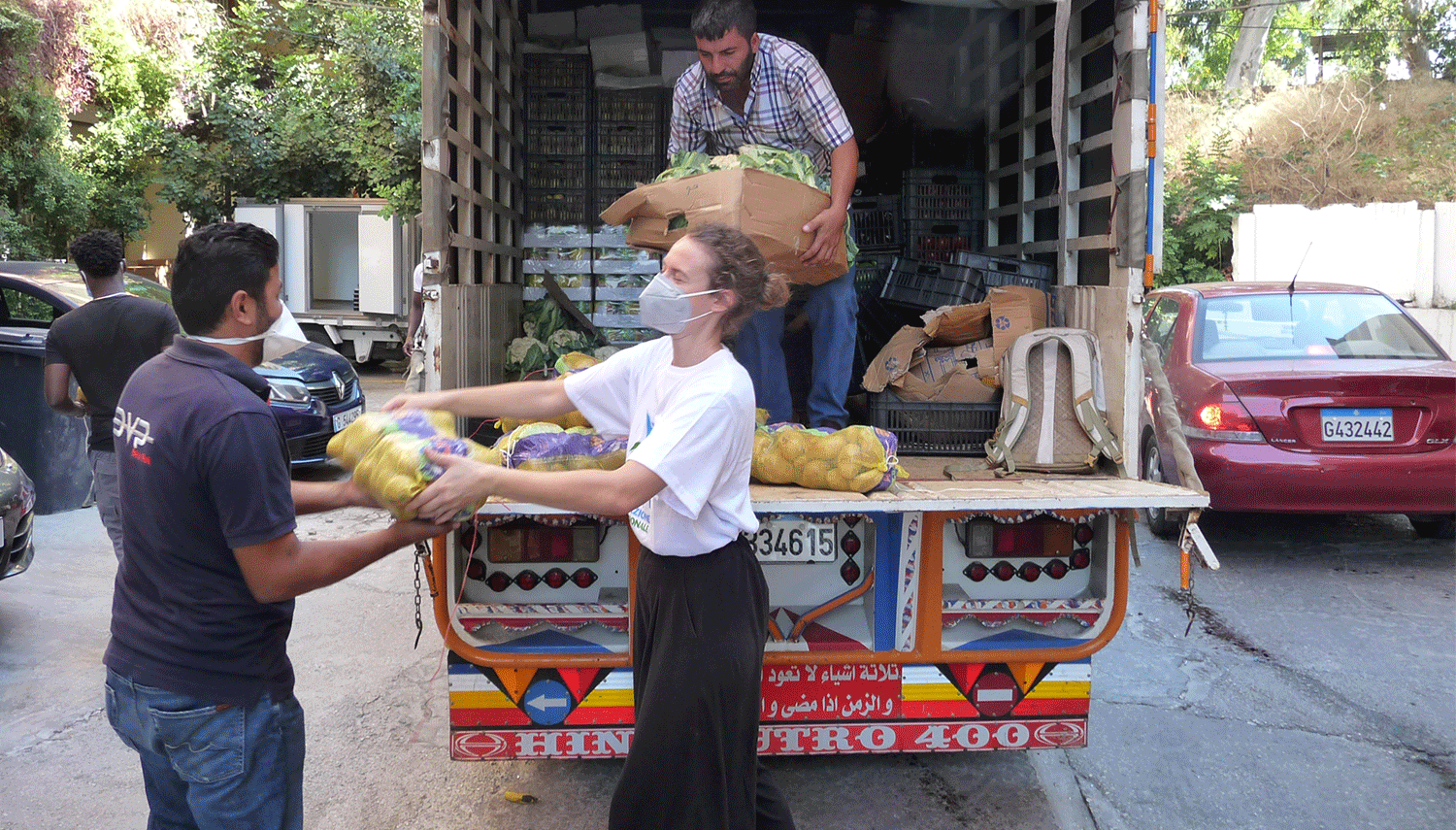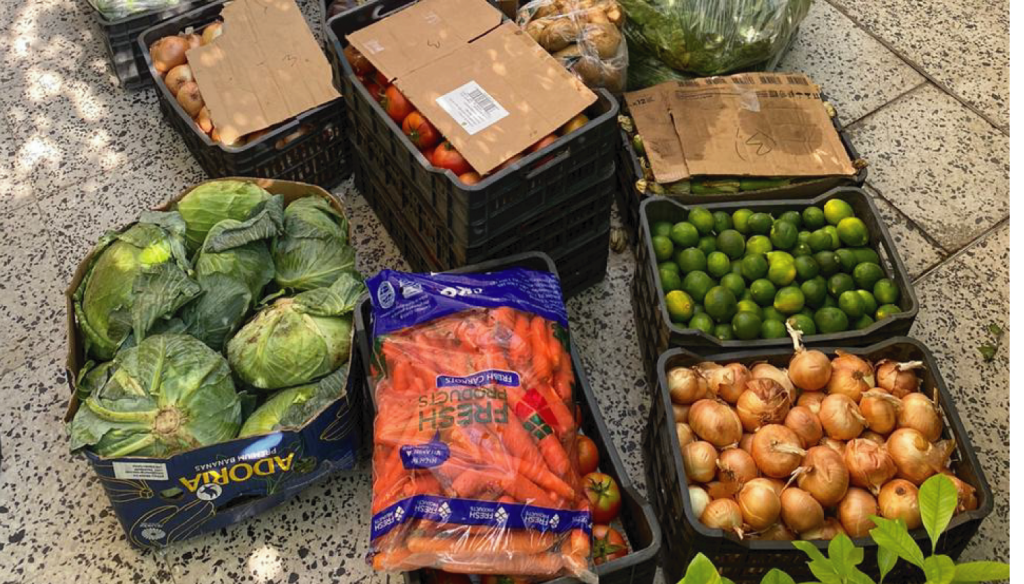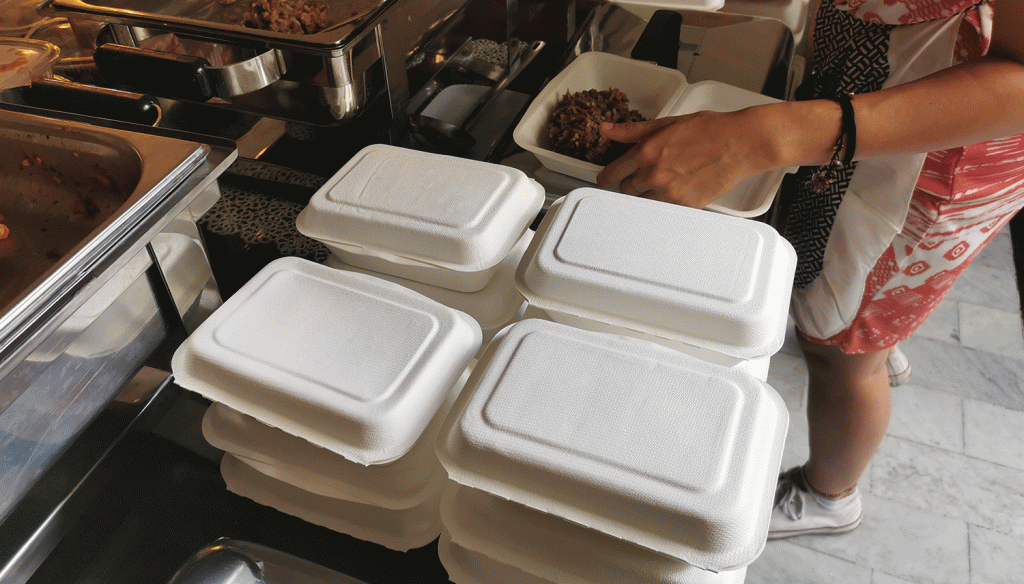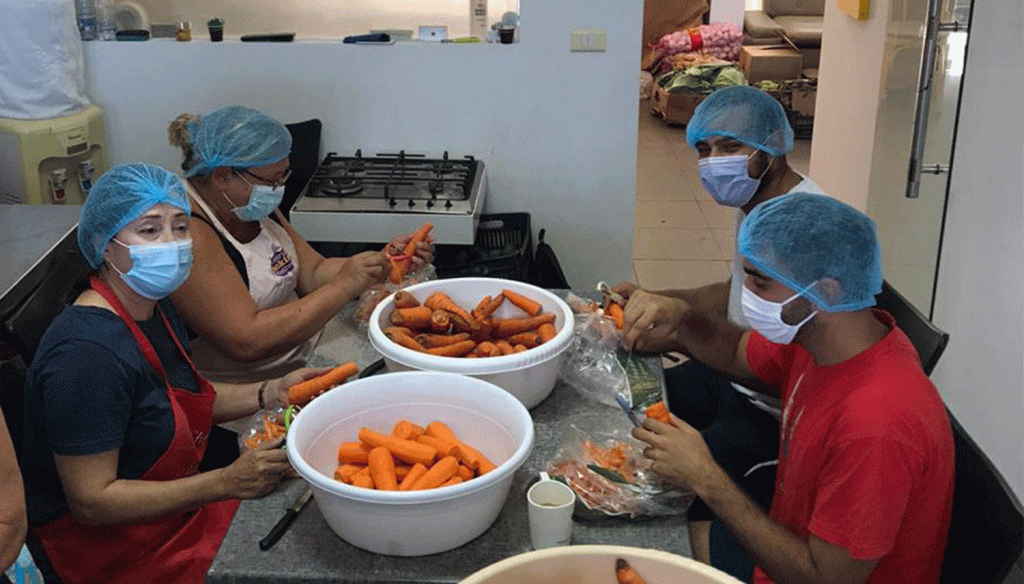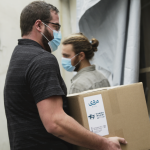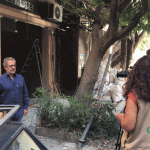Support To 10 Kitchens Providing Sandwiches, Hot Meals and Food Baskets to Vulnerable Households, Volunteers and Medical Staff
Location: Beirut
On August 4th, two explosions at the Beirut port cause the death of around 200 people, with more than 6,500 injured and huge damages (housing buildings, enterprises, etc.) with an estimated number of 300,000 people directly affected.
Donors: COOPI, private donations
Duration: August 7, 2020 – September 7, 2020
Budget: 18,000 €
COOPI: 10,000 €
Private donations: 8,000 €
Description:
The blast intervened in a context of acute economic crisis, which had already greatly increased the vulnerability of the Lebanese to external shocks. Following the explosion, many households were left without resources to recover, in urgent need of food assistance, medical and psychosocial aid, and rehousing.
Food assistance started organizing around different kind of actors: local and international NGOs specialized in food distribution increased their capacities; restaurants and food shops mobilized their kitchen and staff to cook hot meals; citizens organized themselves to provide food baskets and home-cooked meals. In the 3 days following the explosion, Mada association identified several of these food providers and, based on an assessment of the needs, started distributing fresh and dry products to increase their capacity of production.
Activities:
Between the 7th of August and the 7th of September 2020, Mada organized 15 food distributions to these 10 initiatives (3 distributions per week). As detailed below, 53,5 tons of fruits and vegetables were distributed as well as 7,7 tons of dry products (grains, oil, tins), 79 kg of cheese and meat, 20 gallons of water as well as packaging for the food distribution.
To support the Akkar local economy, the fresh products were bought directly from a network of farmers in Akkar and from the Abdeh wholesale market.
The kitchens were able to prepare and distribute 14,033 hot meals, 3,600 sandwiches, 2,257 fresh baskets (10 kg of vegetables and fruits per basket) and 224 dry baskets (10 kg of grains, oil, cans, etc…).

